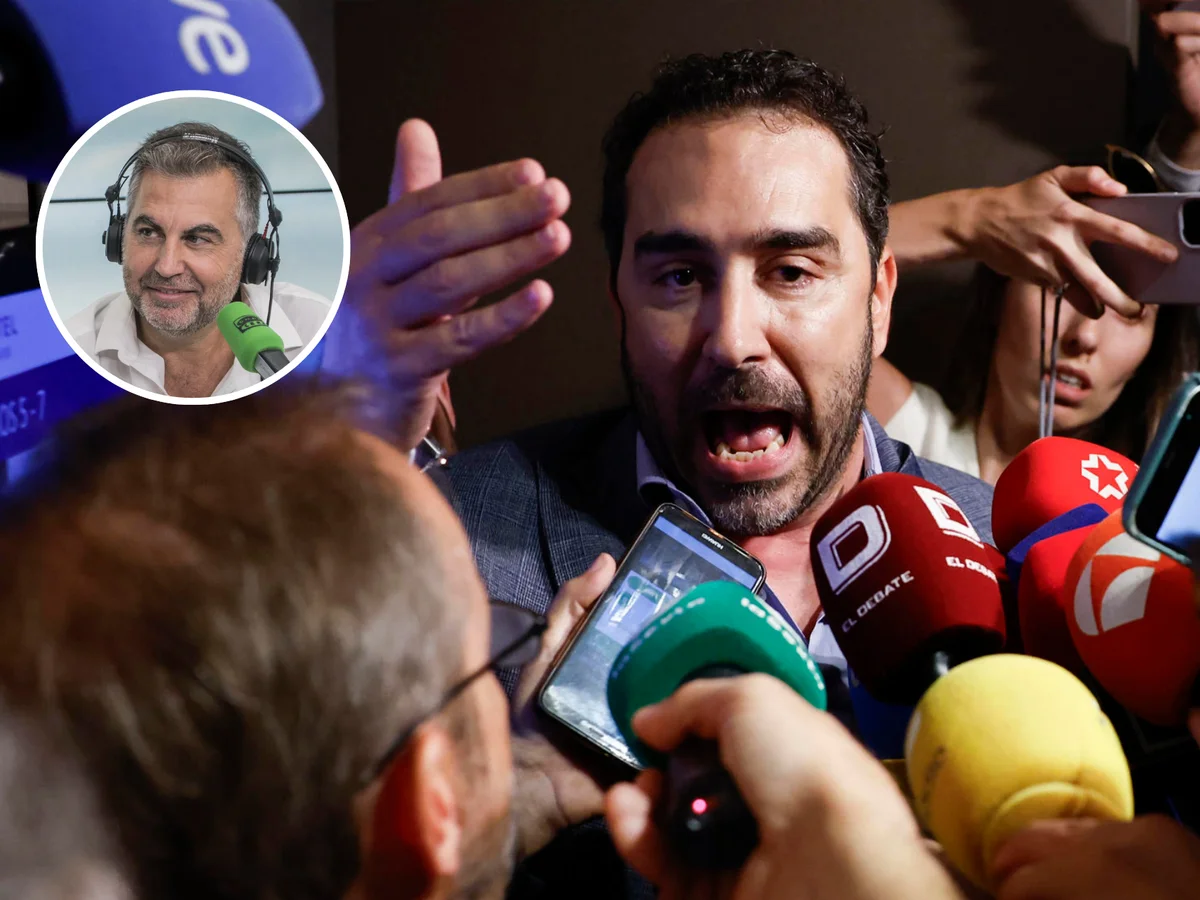Spain is shaken by the explosive leak of PSOE audios revealing internal scandals, the sudden rise of Víctor de Aldama with threats and bold moves, and growing political tension as the Supreme Court and Ayuso clash with Sánchez’s government, leaving the nation in a state of uncertainty and outrage.

In a week filled with political drama, the Spanish political landscape has been rocked by explosive revelations and confrontations that have left citizens buzzing with questions.
The key event that has captured public attention is the leak of audios from the Spanish Socialist Workers’ Party (PSOE), which have unveiled questionable practices and controversial statements from prominent party figures.
These leaks come at a time when the PSOE is already under scrutiny for its handling of various national issues, and the fallout from these revelations could have significant implications for their political future.
One of the most startling aspects of this week’s news is the emergence of Víctor de Aldama, a relatively unknown figure who has suddenly thrust himself into the spotlight with bold and aggressive public statements.
Aldama’s confrontational approach has raised eyebrows, particularly his threats directed at political opponents.
His sudden rise has sparked discussions about the changing dynamics within Spanish politics and the potential for new players to disrupt the status quo.

At the same time, the government’s shifting stance on the role of the Civil Guard, specifically the UCO (Central Operational Unit), has added another layer of complexity to the political narrative.
The UCO has been a critical player in various investigations, and the recent changes in government policy regarding its operations could signal a significant shift in how law enforcement interacts with political entities.
Observers are questioning whether this change is a strategic move to distance the government from ongoing investigations or a genuine effort to reform the institution.
Another major development this week was the unexpected departure of Isabel Díaz Ayuso from the Conference of Presidents.
Ayuso, a prominent figure in the Popular Party (PP), has been a vocal critic of the current government and has often found herself at odds with Sánchez’s administration.
Her abrupt exit from the conference has fueled speculation about internal divisions within the PP and the potential ramifications for her political career.

Compounding these issues is a stern warning issued by the Supreme Court to the government regarding its handling of migrant minors. This ruling has raised alarms about the government’s approach to immigration policy and the treatment of vulnerable populations.
Critics argue that the government has been too lenient in its policies, while supporters claim that a balance must be struck between security and humanitarian concerns.
The court’s intervention underscores the ongoing tensions surrounding immigration in Spain, a topic that has become increasingly polarizing in recent years.
As these events unfold, citizens are left grappling with the implications of these revelations and confrontations. The political landscape is shifting, and the stakes are high as parties position themselves for the upcoming elections.
The PSOE faces a daunting challenge in regaining public trust in light of the leaked audios, while Aldama’s rise could signal a new era of political engagement from outsiders who are willing to challenge established norms.

In the midst of this turmoil, the public’s appetite for political analysis and commentary has never been greater. Many are turning to alternative media channels that promise unfiltered insights into the machinations of power in Spain.
This growing demand for transparency and accountability is pushing traditional media to adapt and respond to the changing landscape of political discourse.
As the dust settles from this week’s events, it is clear that the political climate in Spain is more volatile than ever.
The interplay between established parties and emerging figures like Aldama will be critical to watch in the coming months. With each revelation, the narrative continues to evolve, and the potential for further surprises looms large.
The Spanish public is poised for a season of political intrigue, and as the stakes rise, so too does the urgency for answers and accountability from those in power.
News
Federico Jiménez Losantos Explota Contra Barbie Gaza: “¡Qué Asquerosa!”
Federico Jiménez Losantos arremete duramente contra Barbie Gaza tras sus polémicas declaraciones sobre las violaciones durante la masacre del 7…
El juez Peinado lanza una bomba contra RTVE: Querella por injurias y calumnias
Juan Carlos Caballero confrontó a la presentadora Silvia Intxaurrondo en TVE, acusándola de priorizar la crítica política sobre la información…
Juan Carlos Caballero deja en evidencia a Silvia Intxaurrondo en TVE: “La televisión pública debe informar, no manipular”
Juan Carlos Caballero confrontó a la presentadora Silvia Intxaurrondo en TVE, acusándola de priorizar la crítica política sobre la información…
Ada Colau, Aterrorizada por las Amenazas de Israel: “Solo Quiero Volver a Casa”
Ada Colau, exalcaldesa de Barcelona, participa en la flotilla humanitaria Global Sumud hacia Gaza, pero confiesa sentirse aterrorizada por posibles…
¡Cita Explosiva en First Dates: La Estrategia de Seducción que Dejó a Todos Boquiabiertos!
Pablo, un striper de 20 años, protagonizó una cita muy atrevida y provocadora con Naquiolis, de 34 años, en “First…
😱 ¡Increíble Cita en First Dates! Carlos Sobera Interviene por un Motivo Sorprendente
Durante una cita en First Dates, Pedro, un hombre de 72 años, y Maribel, una mujer más joven, protagonizaron situaciones…
End of content
No more pages to load











